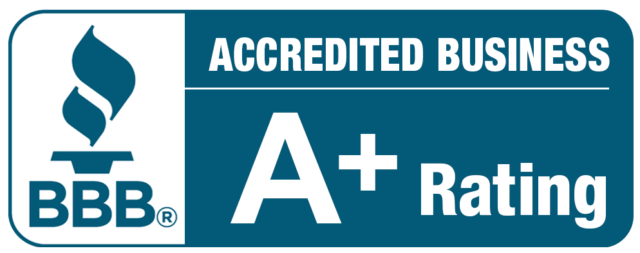In-home care though efficient in caring for people poses as one of the barriers to medication adherence in in-home care settings. We see that there is a rise in complacency and negligence. These pose a striking problem and pose a barrier to adhering to medication as prescribed by the healthcare agent.
That’s where caregivers come in. Helping patients adhere to their medication regimen will not just help them keep track of their medication but also foster healing of the health issue they are treating as well as help them live a pain-free life.
Ensuring proper medication adherence is critical to maintaining health and wellness, especially for individuals receiving care in a home setting. However, numerous barriers can hinder patients from diligently following their prescribed medication regimens. This article will explore common challenges to medication adherence in home care settings and provide practical strategies to overcome them.
Can Patients Intentionally Avoid Medications?
Most nonadherence is intentional with patients making a rational decision not to take their medicine based on their knowledge, experience, and beliefs. Other common reasons for intentional nonadherence could be worrying, fear, mistrust, etc.
What Are The Barriers to Medication Adherence?
While factors that contribute to nonadherence to medication are patient-specific, these are some of the few barriers we have gathered that make patients not adhere to their medication regimen according to the American Medical Association.
1. Complex Regimens
Home care patients often have multiple medications to take at different times of the day. Managing these complex regimens can be overwhelming, leading to missed doses or incorrect administration. This problem can be mitigated if the caregiver provides a Medication schedule or helps the patients keep track using technology.
2. Memory Issues
Many patients in home care settings are elderly or dealing with cognitive impairments. Remembering to take medications as scheduled can be challenging, resulting in inconsistent adherence. This can affect mostly people leaving Alzheimer’s or dementia.
3. Lack of Education
Patients might not fully understand the importance of their medications or the potential consequences of non-adherence. This lack of education can lead to resistance or negligence in taking prescribed drugs. To mitigate this, you can bring in the patient’s doctor to clarify things or speak to them about The Importance of Medication Adherence in Home Care.
4. Side Effects
Some patients experience unpleasant side effects from their medications. This discomfort can discourage them from continuing with their treatment plan.
5. Limited Mobility
Physical limitations can make it difficult for patients to access their medications. They may struggle to open pill bottles, reach high shelves, or travel to a pharmacy to refill prescriptions. offer more help see the Essential Home Modifications for To Enhance Safety and help patients get around easily to get their meds.
6. Communication Barriers
Effective communication between patients, caregivers, and healthcare providers is crucial. Misunderstandings or inadequate communication can result in confusion about medication instructions. To mitigate this foster a conversation and practice Active Listening when the patient is talking.
7. Fear
Some patients may feel scared about the possible side effects of their medication. They might have even had side effects before with the same or a similar medication. Moreover, some patients may choose not to take their medicine because they saw a friend or family member experience side effects while taking the same or similar medicine. Witnessing these side effects might have made them think that the medicine caused those issues.
8. Cost
When patients are prescribed expensive medication, they may choose not to fill their prescription or ration their medication to extend their supply. To prevent this, it’s important to check if the medication you’re prescribing is covered by the patient’s insurance. Choosing a medication that is on a discount list can also help reduce the cost for patients. Additionally, annual prescription renewals can improve medication adherence. It’s important to understand that nonadherence can occur for various reasons.
9. Misunderstanding
When it comes to medication, patients may have questions about side effects or how long it takes to see results. This is particularly relevant for those with chronic illness who need to take medication daily to prevent negative outcomes. If patients are hesitant to take their prescribed medication, seek a professional to provide guidance.
10. Too many medications
When a patient has several different medicines prescribed with higher dosing frequency, the chances that they are nonadherent increase. Physicians can try to simplify a patient’s dosing schedule by adjusting medicines so they can be taken at the same time of day. Choosing long-acting drugs can also help if the dosing burden is too complex. Additionally, if possible, consolidate medicines by using combination products.
11. Lack of symptoms
Nonadherence might occur when there is a lack of symptoms. Patients who don’t feel any different when they start or stop their medicine might see no reason to take it. Additionally, once a patient’s condition is controlled, they may think the problem has resolved and may discontinue using the medication. It is important to inform your patient that they may need to take the medicine for a long time.
12. Mistrust
There has been news coverage of marketing efforts by pharmaceutical companies influencing physician prescribing patterns. This ongoing mistrust can cause patients to be suspicious of their doctor’s motives for prescribing certain medications.
13. Worry
If a patient is concerned about becoming dependent on a medicine, it can also lead to nonadherence. One way to overcome this is to improve patient-physician communication this is important to understand the patient’s rationale for nonadherence.
14. Depression
Patients who are depressed are less likely to take their medications as prescribed. Physicians and other health professionals may be able to uncover this by sharing issues and asking if the patient can relate to them. To reduce embarrassment, express that many patients experience similar challenges.
How Can A Patient Overcome Barriers to Medication Adherence in Home Care?
Here is what you can do to overcome barriers to medication adherence in home care:
- Assistive Devices
- Simplify Regimens.
- Use Pill Organizers
- Address Side Effects
- Technology Solutions
- Provide Clear Education
- Enhance Communication
- Involvement of Caregivers
Overcoming barriers to medication adherence in home care settings requires a multi-faceted approach that involves simplifying regimens, addressing memory issues, providing education, and utilizing technology.
By implementing these strategies and fostering clear communication, healthcare providers and caregivers can significantly improve medication adherence, leading to better health outcomes for patients receiving care at home.
We hope you found this guide helpful.
If you are in Indiana and looking for how to access quality care services and personalized client care plans, visit Good Hands home care agency, where care is offered with professionalism and efficiency.




